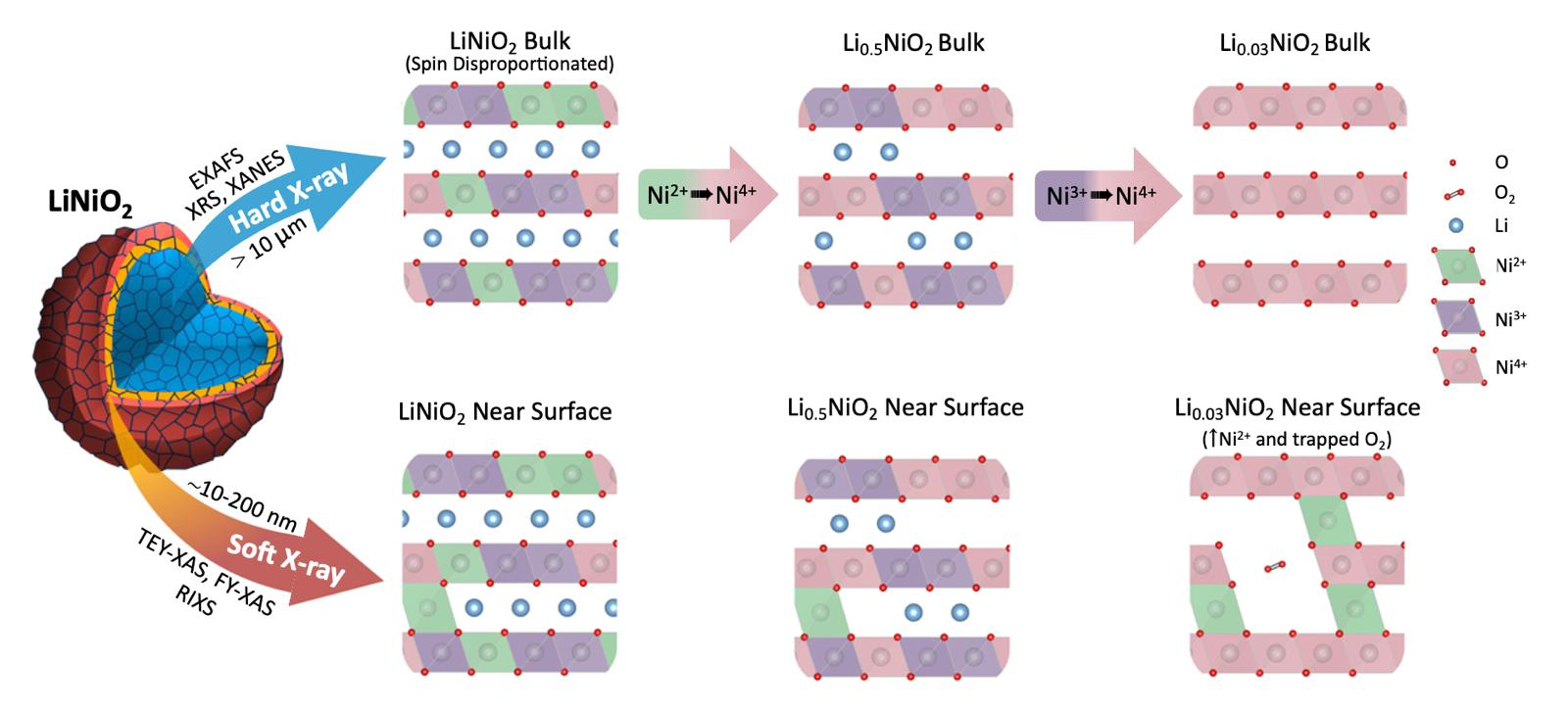As the world shifts away from fossil fuels toward more sustainable energy solutions, the need for efficient and reliable energy storage has never been more urgent. This is especially true for mobile technologies like electric vehicles, where batteries must combine high energy density with long operational lifetimes.
We focus on understanding one of the key challenges in Li-ion battery development: the unwanted side reactions that occur at the electrode surfaces and lead to degradation over time. To tackle this, we combine electrochemical analysis with advanced x-ray techniques including X-ray Photoelectron Spectroscopy (XPS) and X-ray Absorption Spectroscopy (XAS) to investigate these processes taking place on the outermost few nanometers of the active particles.
We are also developing and studying thin film batteries to enable operando studies. These systems use electrodes thin enough that they are transparent to X-rays, and in some cases even electrons, allowing us to perform XAS and XPS during charging/discharging, providing a window into the real time behaviour of buried battery interfaces as they operate.
Another important area of our research looks at how the classical organic electrolytes can be exchanged by water-based electrolytes. By utilising high concentrations of salt dissolved in water, we aim to design electrolytes with good electrochemical performance, paving the way for safer and cheaper batteries.
Funding: Faraday Institution Degradation Project, ERC Starting Grant (EXISTAR)
